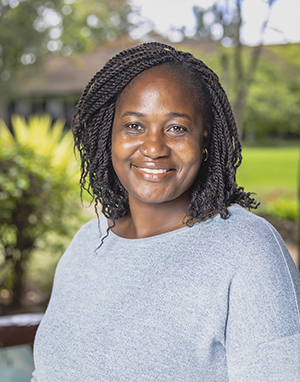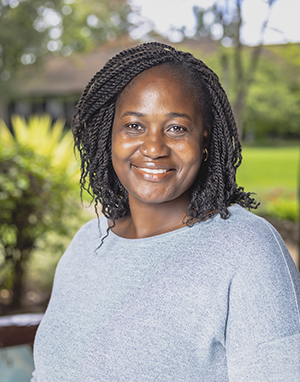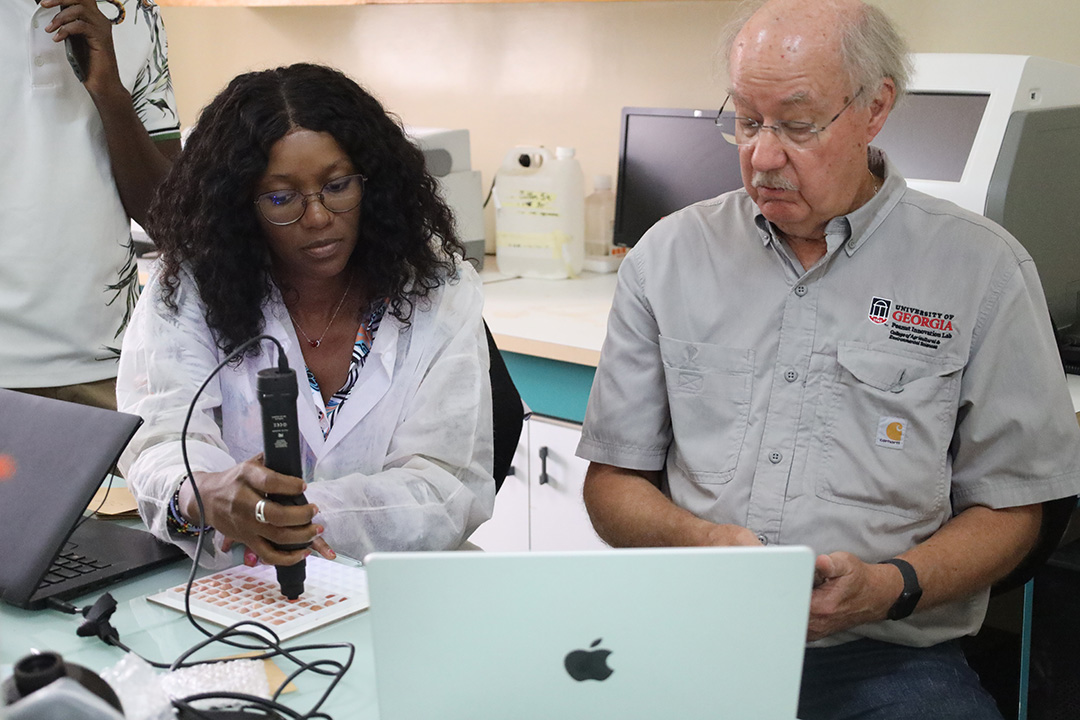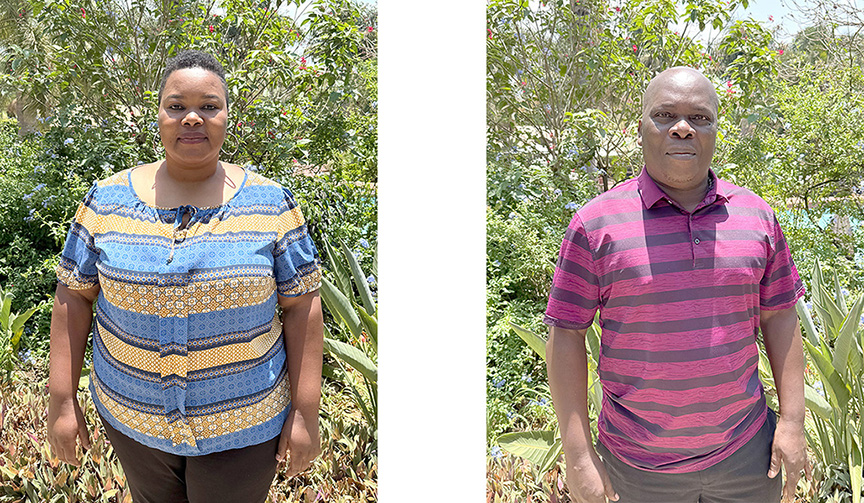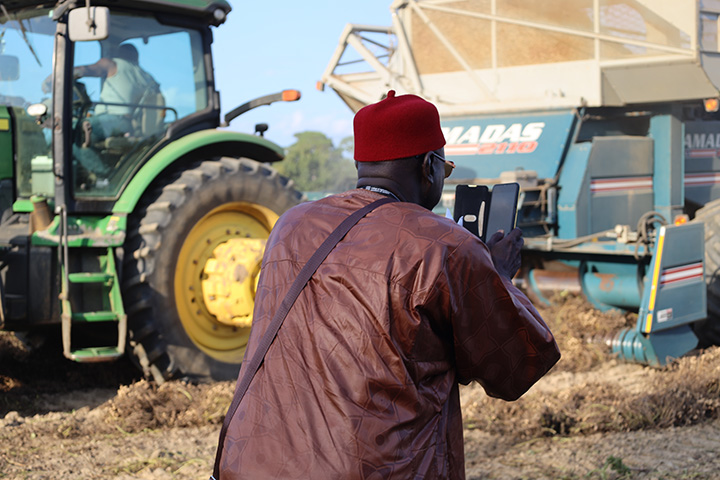The Feed the Future Innovation Lab for Peanut recently added two team members in Malawi to oversee projects there. While the Peanut Innovation Lab is headquartered at the University of Georgia and involves scientists from two dozen research insitutions in the U.S. and Africa, these Malawi-based team members are part of the management entity, overseeing day-to-day operations in a very hands-on way.
Meet Linda Chinangwa, project manager for social science research.
Dr. Chinangwa holds a PhD in Conservation Biology from Bangor University in North Wales, UK, as well as a master’s degree in Natural Resources and Sustainable Agriculture and a bachelor’s degree in forestry. With strong experience in research design and implementation, she specializes in gender and social inclusion, food systems and livelihoods, climate adaptation, forest resources assessment, environmental assessment, impact evaluation, feasibility studies, and training.
As the project manager for social science in Malawi, Chinangwa works closely with gender specialist Jessica Marter-Kenyon and the rest of the management team to implement the Innovation Lab’s gender-focused work. That research involves looking to understand the impacts of groundnut commercialization on the lives and livelihoods of farmers, including the women who have previously dominated cultivation. To that end, the projects are evaluating whether specific forms of economic and social intervention (including contract farming, market provision, cash transfers, and household-level strategic planning) lead to increased gender equity and welfare in the household.
Q: Your educational background in biological science, but your work seems to involve how people interact with that science. Was that intentional or has the way you apply your education to real world problems changed over time?
A: As I progressed in my studies and career, it became apparent that the whole reason for conservation and science was to enhance human well-being, which one would term developmental issues or real-world problems. Therefore, I intentionally started to incorporate the people/development aspect in my studies and work.
Q: What do you think is the key to understanding people’s lives and improving quality of life?
A: From my perspective, the key to understanding people's lives and improving their quality of life is to acknowledge that everything/all is connected, forests, agriculture, water, and people are all connected. Therefore, a wholesome/inclusive approach to development, research and project implementation should always be advocated for and applied.
Q: Work to improve women’s lives is complex – much more complex than simply empowering them with a one-time training. What do you hope to learn or change through your work with this project?
A: I hope to learn on how different empowerment modules and agriculture projects can sustain empowerment at individual and household levels. Furthermore, how the knowledge gained can be translated into practical real-life changes in the everyday lives of the women and their communities, beyond the project.

